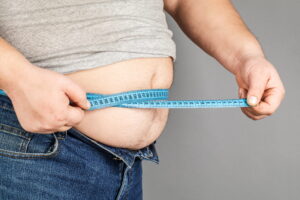Losing weight is challenging for many people. The idea that you can simply take a supplement to convert your body’s fat into usable energy definitely sounds enticing. But is it scientifically possible? Let’s examine what the research says.
How Our Bodies Use Energy
First, a quick overview of how our bodies access energy. We get energy from the food we eat in the form of calories. Our body’s preferred source of energy is carbohydrates. When carbs are unavailable, our bodies tap into stored fat through a process called ketogenesis.
Ketogenesis helps break down fats in our fat cells and liver. This produces molecules called ketones to fuel the body and brain when carbs run low.
The Promise of “Fat Burning” Supplements
Supplement companies have latched onto ketogenesis excitement. Many now market products said to help flip the metabolic switch. Supposedly converting stubborn fat into energy.
These supplements often contain BHB salts (beta-hydroxybutyrate). BHB is one of the main ketones produced during ketogenesis. So in theory, having more BHB could mean more available ketones to help burn fat.
Let’s analyze the real-life research on these “keto supplements” more closely:
Do Exogenous Ketone Supplements Really Help Burn Fat?
Multiple studies have now been conducted on exogenous BHB ketone salts. What does the science say about their effectiveness?
Minimal Impact on Fat Breakdown
- Research shows BHB supplementation only minimally impacts actual fat breakdown for energy. One study found 100mg/kg of BHB salts increased fat oxidation by just 0.04 grams per hour [1]. So effects seem small.
May Blunt Appetite
- There is some early evidence that BHB supplementation decreases self-reported appetite and food intake compared to placebo groups [2]. More research is still needed.
Won’t Mimic Full Nutritional Ketosis
- Achieving very high BHB levels via supplementation does NOT indicate full-blown ketosis is taking place [3]. Nor does it provide the same metabolic benefits.
The bottom line is BHB salts will only ever minimally increase ketone levels. They do not force the body to start breaking down its own fat. They will not create the same effects as nutritional ketosis itself.
Risks of Exogenous Ketones Supplements
While more research is still emerging, potential risks of these BHB supplements include:
- Gastrointestinal distress
- Hypoglycemia in diabetics
- Dehydration and electrolyte imbalances
- Issues when combining with other treatments
Users need to be aware of adverse reactions, especially those with medical conditions.
Takeaway: Use Supplements to Augment, Not Replace
While the science shows exogenous ketone supplements have limitations, they could still help augment an already healthy regimen. Think of them as supportive rather than foundational to your goals.
Healthy, sustainable weight loss continues to be about creating an ongoing calorie deficit, staying active, and eating whole, nutrient-dense foods. Supplements may offer biohacking opportunities. But the basics of nutrition and fitness remain paramount for long-term transformation.
There is still much to uncover in ketone and metabolism research. But science indicates there are currently no “miracle” replacements for balanced nutrition paired with activity. Be wary of any product making outrageous fat conversion or weight loss claims.
What are exogenous ketone supplements?
Exogenous ketone supplements, usually containing BHB salts, are marketed as mimicking ketosis to help burn fat. But the extent to which they can actually convert fat to energy is debated
Can taking BHB really burn fat?
There is preliminary evidence that BHB supplementation can slightly increase fat oxidation and reduce appetite. However, studies show they only minimally impact fat breakdown for energy. They don’t create full ketogenesis.
Are exogenous ketones as effective as ketosis from diet?
No. Achieving high ketone levels from supplements does not provide nearly the same metabolic benefits as entering nutritional ketosis through carb restriction. The supplements are only supportive of a healthy regimen
Are there risks to taking exogenous ketones?
Potential risks of exogenous BHB supplements include gastrointestinal issues, dehydration, electrolyte imbalances, hypoglycemia in diabetics, and unknown interactions with medications. More research is needed on long-term safety
Can supplements replace diet and exercise for fat loss?
No. While supplements may modestly augment a healthy regimen, sustained weight loss still comes through an ongoing calorie deficit, activity levels, and balanced nutrition from whole foods. There are no miracle replacements.
Is this just another hyped weight loss product?
Supplement companies have overpromised on research showing BHB salts can profoundly burn fat without the hard work of diet and training. While promising as a supplement, science does not support the hype around fat conversion miracles. Buyer beware.
References:
[1] Cox, P. J., Clarke, K. (2014). Acute nutritional ketosis: implications for exercise performance and metabolism. Extreme Physiology & Medicine. https://doi.org/10.1186/2046-7648-3-17
[2] Stubbs, B. J., Cox, P. J., Evans, R. D., Cyranka, M., Clarke, K., & de Wet, H. (2017). A Ketone Ester Drink Lowers Human Ghrelin and Appetite. Obesity (Silver Spring, Md.), 26(2), 269–273.
[3] Newman, J. C., & Verdin, E. (2017). Ketone bodies as signaling metabolites. Trends in Endocrinology & Metabolism, 25(1).





